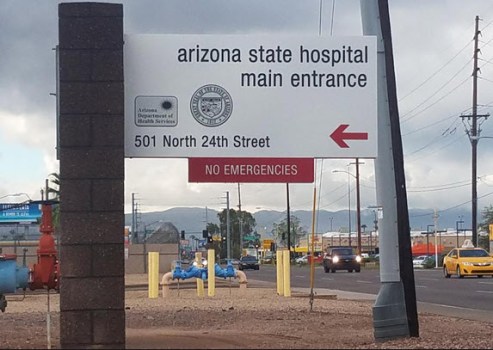Medicaid is our social safety-net program in the United States that provides health coverage for some of the country’s most vulnerable citizens. It is essential for people with serious mental illnesses. Sadly, Medicaid law contains the IMD exclusion provision, which excludes payment for services for those unfortunate people needing long-term in-patient care. The IMD exclusion is a significant barrier to meaningful treatment for people with serious mental illness (SMI).
In addition, failing to recognize that involuntary treatment is required for many people with SMI has led to many individuals living lives without dignity on the streets or being punished in our jails and prisons.
There are many reasons why more Medicaid services are needed for the seriously mentally ill:
- Rising Prevalence: The number of people diagnosed with serious mental illnesses is rising. As the population increases and the stigma around mental health starts to fade, more individuals seek help. This calls for a proportional increase in services. We have not seen this happening in AZ.
- Complex Needs: Individuals with serious mental illnesses often require comprehensive, long-term, individualized care that can include therapy, medications, crisis services, and sometimes even inpatient care. The current inpatient stays are relatively short, almost always under the 15-day IMD cap. There is no artificial capitation for other medical conditions.
- Coexisting Conditions: Many people with serious mental illnesses have co-occurring physical health issues or substance use disorders. They need integrated care services that can address all their health needs simultaneously. There is an attempt at integrated care, but there are no shining examples I am aware of.
- Societal Benefits: Comprehensive services can reduce societal costs, such as homelessness, incarceration, and emergency medical care. Individuals with untreated mental illness often end up in emergency rooms, the criminal justice system, or living homeless, which are more costly interventions than preventive and therapeutic services.
- Economic Considerations: Early and consistent treatment can help individuals with serious mental illnesses maintain employment and contribute to the economy. Without adequate services, these individuals are at a higher risk of unemployment and homelessness, increasing the economic burden on society.
- Crisis Prevention: Regular access to treatment can help prevent mental health crises. Crises not only endanger the individual but also place a strain on emergency services, hospitals, and the broader community. Unfortunately, there are many police encounters with individuals in crisis who end up injured, incarcerated, or dead due to the symptoms of their disease.
- Housing Stability: Stable housing is crucial for recovery. Sadly Medicaid does not pay for housing, only treatment when medically necessary. Refer to the ASU Morrison Institute Housing is healthcare to understand that it is not only the right thing to do for the patient but also saves society about 30% over the cost of treating unhoused people with serious mental illness.
- Better Outcomes: Continuous access to mental health services has led to better health outcomes and quality of life. Medicaid can fill the gap, ensuring the most vulnerable have consistent access to these essential services. Providing the entire continuum of care is available.
- Stigma Reduction: By increasing the availability of services and prioritizing mental health, society takes a step toward reducing the stigma surrounding mental illness. This can encourage more individuals to seek help when they need it. Receiving care early is essential to stopping episodes of psychosis and protecting the brain.
- Future Savings: Investing in mental health now can lead to savings in the future. Providing comprehensive mental health services through Medicaid makes individuals less likely to require more intensive and costly interventions later on. Again refer to the ASU Morrison Institute study.
New York and California have seen the results of not enforcing treatment. Each is now taking small steps to reverse the substantial number of homeless people with serious mental illness. In summary, expanding Medicaid services for the seriously mentally ill is not only a moral imperative, considering the vulnerable nature of this population, but it’s also a wise investment. It can lead to better health outcomes for individuals, reduce societal costs in other sectors like criminal justice, and result in a healthier, more productive, and safer society.
Laurie Goldstein
ACMI
**************************************************************************************************************************************************************************************************
Bill aims to support people with serious mental illnesses (nystateofpolitics.com) published August 1st 2023

The bill was introduced by Sen. Kirsten Gillibrand and Rep. Dan Goldman. (Spectrum News NY1)
POLITICS
N.Y. bill aims to bolster services for people with serious mental illnesses
BY PATRICK ADCROFT NEW YORK CITY
PUBLISHED 3:30 PM ET AUG. 01, 2023
Sen. Kirsten Gillibrand, Rep. Dan Goldman and Rep. Jerry Nadler on Tuesday touted legislation aimed at strengthening access to medical care for people living with serious mental illnesses.
The “Strengthening Medicaid for Serious Mental Illness Act,” if passed, would generate new services under Medicaid designed specifically for people living with mental illnesses like schizophrenia, bipolar disorder and major depressive disorder, the lawmakers said during a news conference at Manhattan’s Fountain House.
What You Need To Know
· A bill introduced by Sen. Kirsten Gillibrand and Rep. Dan Goldman in June, the “Strengthening Medicaid for Serious Mental Illness Act,” aims to strengthen access to medical care for people living with serious mental illness
· Gillibrand, Goldman and other New York elected officials touted the legislation during a news conference at Manhattan’s Fountain House on Tuesday
· The legislation, if passed, would generate new services under Medicaid designed specifically for people living with mental illnesses like schizophrenia, bipolar disorder and major depressive disorder
The legislation would also set a national standard for care for people with serious mental illness and incentivize states to provide services to treat them.
“Those with serious mental illness have often found themselves in a devastating cycle: going from hospitals to jails to the streets, and back around again,” said Gillibrand, who first introduced the legislation along with Goldman in June.
“Frankly, it’s unacceptable and it’s inhumane,” she added. “It’s a major issue for public safety and it’s a major issue for caring for our families.”
The legislation would provide states with the ability to offer services that would help people with severe mental illness get and keep jobs. It would also allow states to provide access to support services and mobile crisis intervention teams.
States would also be required to abide by certain standards of care, such as tracking disparities in treatment, according to a news release from Gillibrand.
“We are still struggling in the aftermath of COVID, which interrupted mental health treatment for so many, especially the low-income and underprivileged individuals in our community who rely on government services, the community services that were halted,” Goldman said.
“And that’s why this bill is so important,” he added. “It’s important that we get people the treatment they need in a way that works.”




















You must be logged in to post a comment.